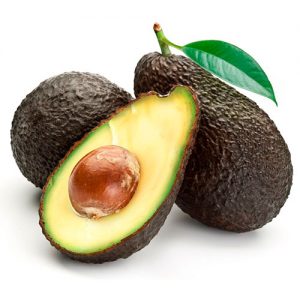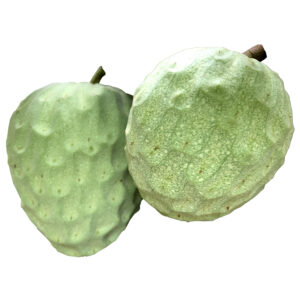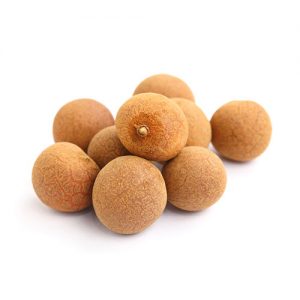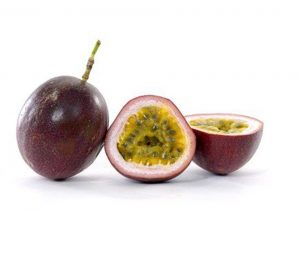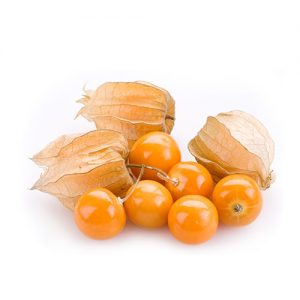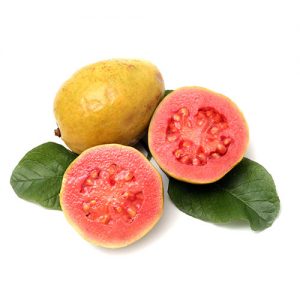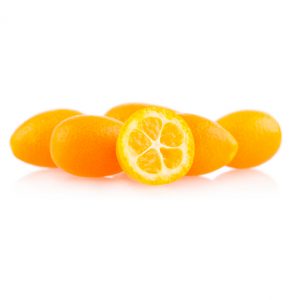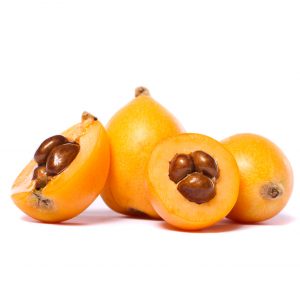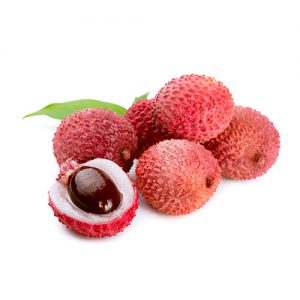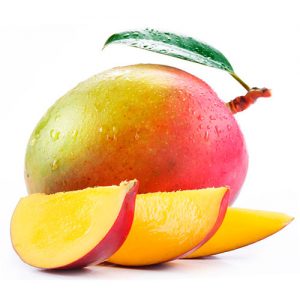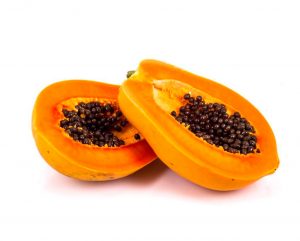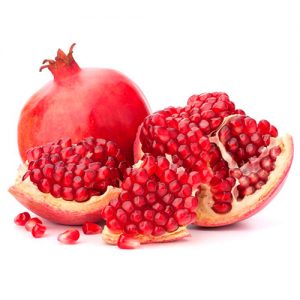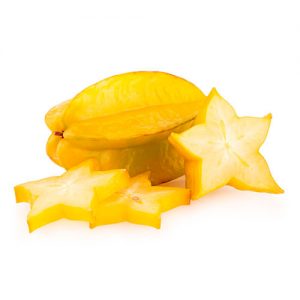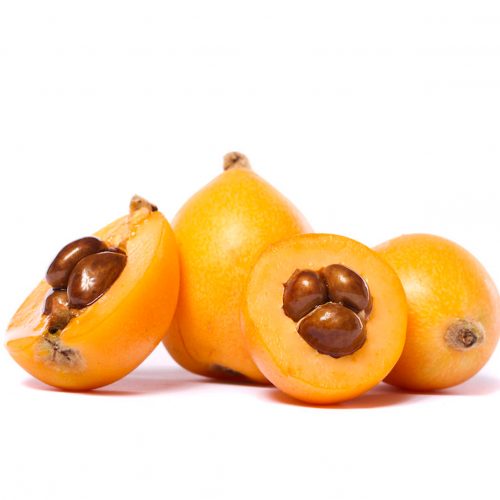About the Loquat
The loquat is a round or oval-shaped fruit. It has orange skin and yellowish/orangish flesh which is very juicy, sweet and aromatic. The taste resembles that of the apple or pear, with an acidic touch.
Loquats must be completely fresh and ripen to taste the best of it. This fruit does not get soft and it can be consumed even if it has been frozen or stored.
Loquats grow slowly on the medlar tree, which can reach 59 ft (18 m) and features a thick, tall, cylindrical trunk growing straight and gracefully. Leaves are oblong-shaped and bright. They are very decorative. Flowers are white and small, blossoming from thin stems at the base of the leaves.
How to preserve and consume loquats
If you want your loquats to ripen rapidly, wrap them up in silver foil and store in the freezer for an hour. You can consume the fruit next day (our recommendation is doing it as soon as possible) or store it in a less cold part of the fridge.
Peeling loquats off is very easy: you just need to pull the stem downwards to get the skin off. This fruit should be consumed fresh to enjoy the best taste and benefit from its many nutritional properties.
Loquats can also be used in jams, sauces or as a garnish for several types of meat.
Nutritional properties of the loquat
| LOQUAT NUTRITION FACTS – 100 G | |
|---|---|
| CALORIES | 70 |
| TOTAL FAT | 0.3 g – 0% |
| SATURATED FAT | 0.06 g – 0% |
| POLYUNSATURATED FAT | 0.136 g |
| MONOUNSATURATED DAT | 0.012 g |
| CHOLESTEROL | 0 mg – 0% |
| SODIUM | 1 mg – 0% |
| POTASSIUM | 396 mg |
| TOTAL CARBOHYDRATE | 18.09 g – 6% |
| DIETARY FIBER | 2.5 g – 10% |
| PROTEIN | 0.64 g |
| VITAMIN A | 46% |
| VITAMIN C | 2% |
| CALCIUM | 2% |
| IRON | 2% |
Percent Daily Values are based on a 2000 calorie diet. Your daily values may be higher or lower depending on your calorie needs.
Health benefits of the loquat
- Loquats are known for their high content in pectin, which is a kind of fibre that removes the waste and toxins from your body and provides a sense of fullness at the stomach. Therefore, it is highly recommended if you intend to be on a loss weight diet.
- Thanks to its fibre content, it is quite good for keeping diabetes and cholesterol under control.
- The flesh contains beta-carotene, a well-known anti-oxidant that helps reduce the risk of cardiovascular or degenerative diseases.
- Loquats are also considered a diuretic fruit because of their content in potassium and organic acid. Therefore, they are very suitable for people with uric acid-related problems, high blood pressure or gout.
- As they are rich in iron, calcium, copper and magnesium, they are good for your bones, they prevent anemia and they boost the production of red cells.
- The extract from the leaves contains ursolic acid and triterpenes, acting against the inflammation of the bronchi. For this reason, loquats are used as a medication to treat bronchitis.
- Consumption of this fruit is perfectly fit for pregnant women or women who are breastfeeding, mainly because of the high content in sugars, fibre and above all carotene (a natural anti-oxidant). The carotene also protects the digestive mucosa and helps treat gastritis and heartburns.
Loquat Varieties
There are two types of loquats: Japanese and Chinese. Japanese loquats have fewer seeds and an earlier ripening stage, while Chinese loquats have more seeds and a late ripening stage. The most popular varieties that can be found in the market are the following:
- Algerie: early variety of great production. The fruit is small-sized, the skin is yellow-coloured with no spots and the flesh has a sweet&sour flavour.
- Tanaka: this is the variety with the latest ripening stage, requiring a more prolonged exposure to sunlight. The fruit is bigger and it tastes sweeter and more aromatic.
- Golden nugget: this loquat is round-shaped. The skin is dark orange and can contain little brown spots. The flesh is orange-coloured, sweet and very juicy. This is the earliest and most acid variety.
- ‘Peluche’ loquat: this is a recent variety from the Spanish market. The fruit is characterized by its large size and elongated shape. The skin is grainy and pale yellow-coloured. The flesh is juicy, meaty and very sweet. This variety of loquat is getting more and more popular (and therefore more consumed).
Curious facts about loquats
- Loquats are the first stone fruit present in the spring markets.
- In Japan, loquats are given as a token of respect or greeting.
- It is a highly recommended fruit in loss weight diets due to its low fat and sodium content and its great fibre content.
- Merchant seamen from China brought loquats into the Iberian Peninsula through the Port of Sagunto (Valencia) more than two thousand years ago.

